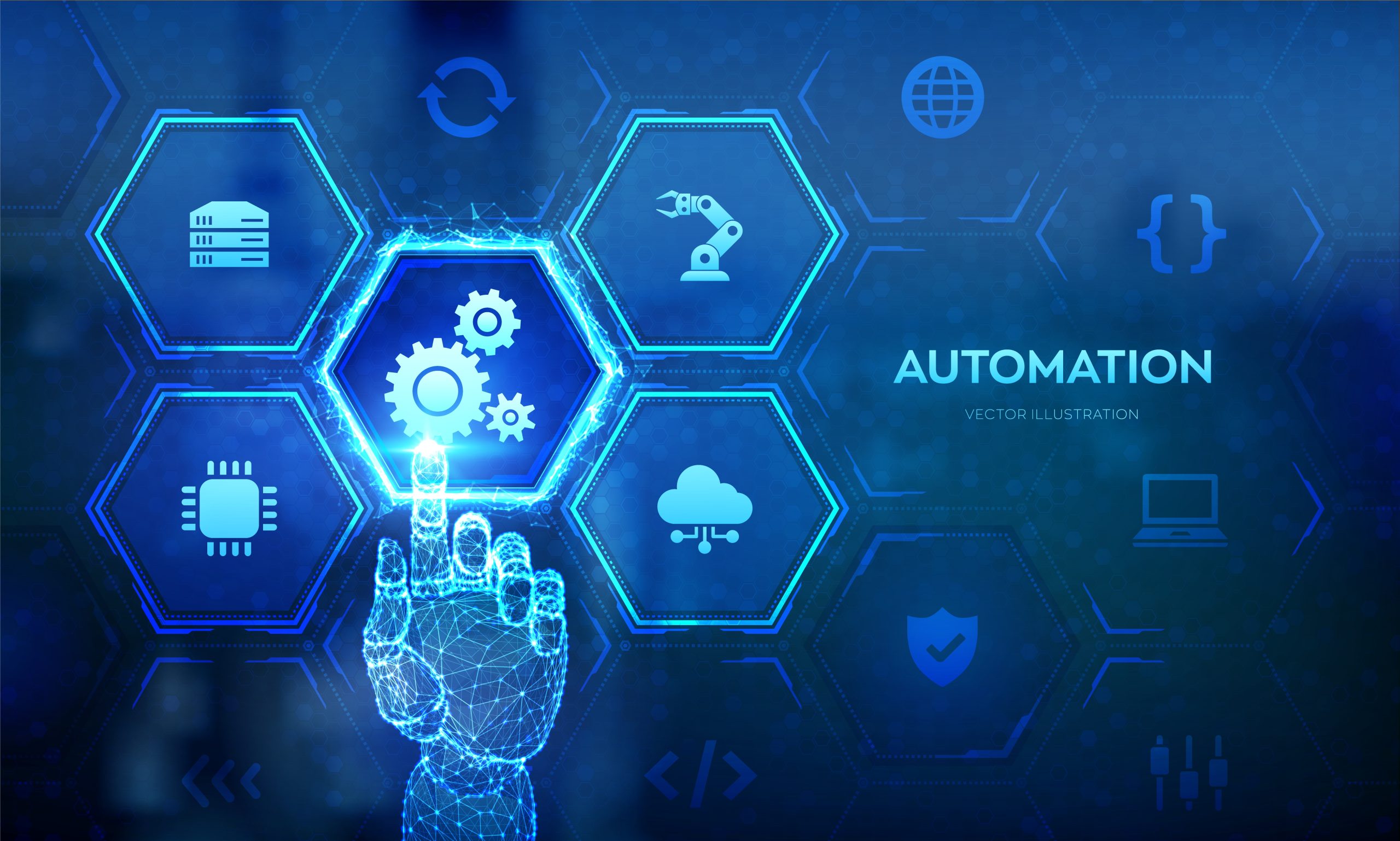
- By qematicadmin
In today’s fast-paced business environment, enterprises across industries like manufacturing, engineering, supply chain, and logistics are under constant pressure to improve efficiency, reduce costs, and enhance customer experiences. While Robotic Process Automation (RPA) has played a significant role in streamlining operations, the next evolution is already here: Intelligent Automation (IA).
At Qematic, we help enterprises go beyond traditional automation by integrating AI-driven decision-making with RPA services. Let’s explore what intelligent automation is, why it matters, and how your business can benefit from embracing this powerful approach.
What is Intelligent Automation?
Intelligent Automation (IA), also known as Intelligent Process Automation (IPA), refers to the combination of RPA robotic process automation, Artificial Intelligence (AI), Machine Learning (ML), and analytics to create systems that not only automate tasks but also learn, reason, and make decisions.
While RPA automation excels at automating rule-based, repetitive tasks, intelligent automation takes it a step further by:
- Understanding unstructured data
- Learning from patterns
- Making data-driven decisions
- Continuously improving over time
In short, IA brings cognitive capabilities to automation.
Key Technologies Driving Intelligent Automation
Several advanced technologies work together to power intelligent automation:
- Robotic Process Automation (RPA): Automates repetitive, rule-based tasks.
- Artificial Intelligence (AI): Enables machines to mimic human reasoning and problem-solving.
- Machine Learning (ML): Allows systems to learn from historical data and improve decision-making over time.
- Natural Language Processing (NLP): Enables systems to understand and process human language.
- Computer Vision: Allows automation systems to analyze and interpret visual information.
- Advanced Analytics: Provides insights that guide process optimization and business decision-making.
Benefits of Intelligent Automation for Enterprises
Implementing intelligent automation offers a range of benefits for organizations across industries:
1. End-to-End Process Automation
Unlike traditional RPA services, which focus on specific tasks, IA enables the automation of entire workflows, from data capture and analysis to decision-making and action execution.
2. Improved Operational Efficiency
By automating both simple and complex tasks, IA helps reduce manual effort, accelerate process execution, and eliminate errors.
3. Enhanced Customer Experiences
Intelligent automation can personalize customer interactions, provide real-time support, and ensure faster issue resolution, leading to higher customer satisfaction and loyalty.
4. Better Decision-Making
AI-powered systems analyze vast datasets quickly and generate actionable insights, enabling leaders to make informed decisions faster.
5. Cost Reduction
By optimizing resource allocation and reducing the need for manual intervention, IA significantly lowers operational costs.
6. Scalability and Flexibility
As your business grows, IA solutions can scale easily to handle increased volumes without compromising performance.
7. Compliance and Risk Management
Intelligent automation can monitor transactions in real time, flag anomalies, and ensure compliance with industry regulations, minimizing operational and financial risks.
Real-World Applications of Intelligent Automation
Enterprises are already using IA across various business functions. Here’s how:
1. Supply Chain Management
IA can predict demand fluctuations, optimize inventory levels, and automate procurement and logistics planning.
2. Manufacturing and Engineering
From predictive maintenance and quality control to production scheduling, IA enhances efficiency and reduces downtime.
3. Customer Support
Chatbots powered by NLP and AI handle routine customer queries, while RPA robotic process automation tools manage backend processes like ticket routing and data updates.
4. Finance and Accounting
Intelligent automation helps automate invoice processing, fraud detection, financial reporting, and regulatory compliance checks.
5. Human Resources
IA can streamline HR processes like employee onboarding, payroll management, and talent acquisition, freeing HR teams to focus on strategic tasks.
The Relationship Between RPA and Intelligent Automation
Some organizations confuse RPA automation with Intelligent Automation, but here’s a quick comparison:
|
Feature |
RPA |
Intelligent Automation (IA) |
|
Scope |
Rule-based task automation |
End-to-end intelligent process automation |
|
Data Handling |
Structured data |
Both structured and unstructured data |
|
Decision-Making |
Predefined rules |
AI-driven, context-aware decisions |
|
Learning Ability |
No |
Yes (through AI and ML models) |
|
Technologies Used |
RPA tools |
RPA + AI + ML + NLP + Analytics |
In essence, IA builds on RPA services and adds intelligence, learning, and adaptability.
How Qematic Supports Your Intelligent Automation Journey
At Qematic, we understand that every enterprise is unique. That’s why we offer customized intelligent automation solutions tailored to your specific business needs. Here’s how we help:
1. Intelligent Process Assessment
We analyze your existing workflows and identify high-impact areas where IA can deliver maximum ROI.
2. RPA Services and AI Integration
Our team combines RPA robotic process automation with AI technologies like ML and NLP to build intelligent workflows that automate decision-making.
3. Custom AI Model Development
Where needed, we develop and deploy custom AI models that learn from your enterprise data, enhancing the decision-making power of your automation systems.
4. End-to-End Implementation
From initial planning to deployment and ongoing optimization, Qematic offers full-cycle support for your IA projects.
5. Continuous Improvement
We help you monitor performance, collect feedback, and adjust AI models and RPA bots to continuously improve efficiency and business outcomes.
Overcoming Common Challenges in Intelligent Automation Implementation
While the benefits of IA are significant, enterprises often face challenges such as:
- Data quality issues
- Integration with legacy systems
- Change management and employee training
- Initial investment costs
Working with experienced RPA companies like Qematic can help mitigate these risks. Our approach focuses on phased implementation, ensuring your teams are comfortable with new tools and processes before scaling.
Future Trends: The Evolving Role of Intelligent Automation in Enterprises
As AI technologies continue to evolve, intelligent automation will become even more central to enterprise operations.
Some emerging trends include:
- Hyperautomation: Combining IA with process mining and analytics for fully automated, data-driven business models.
- Autonomous Decision-Making: Systems that can make complex decisions with minimal human intervention.
- AI-Driven Analytics: Deep integration of IA with enterprise analytics platforms for real-time decision support.
Enterprises that adopt intelligent automation today will gain a competitive edge, positioning themselves for long-term success in a digital economy.
Final Thoughts: Intelligent Automation is the Future of Enterprise Operations
The era of simple task automation is giving way to intelligent, AI-driven process transformation. By embracing Intelligent Automation, businesses can unlock new levels of efficiency, agility, and innovation.
At Qematic, we’re committed to helping organizations like yours leverage RPA services, AI, and data-driven automation to build smarter, more resilient operations.
Ready to take the next step in your automation journey?
Contact Qematic today to explore how intelligent automation can transform your business.

